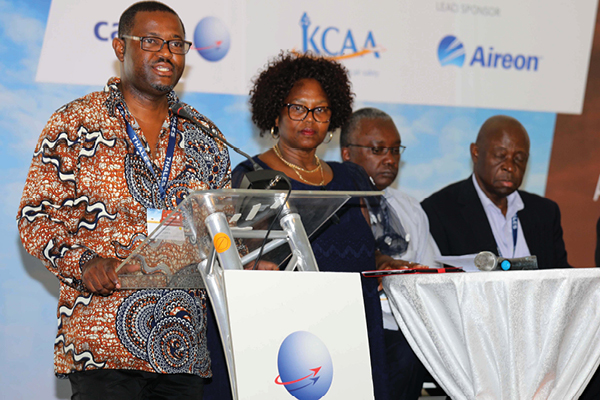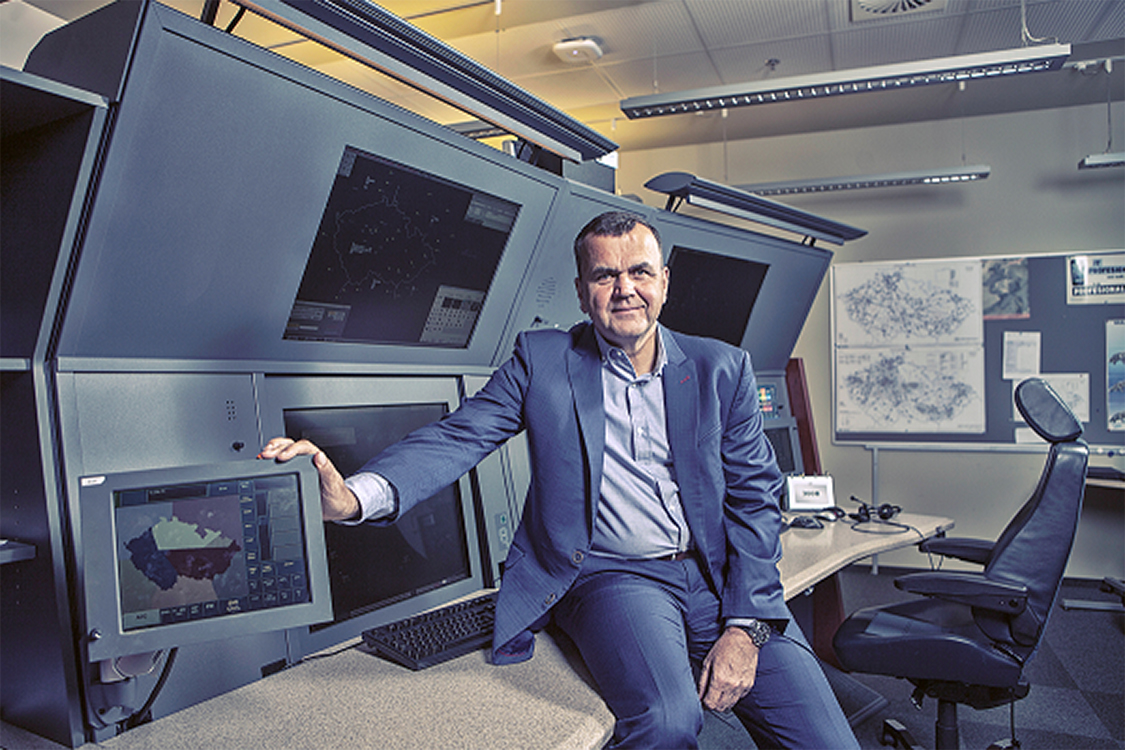Airspace Q3 2019: Key challenges in African ATM
Hamza Johari, CANSO Africa Chair and Director General, Tanzania Civil Aviation Authority, outlines key ATM issues and initiatives in Africa.

Aviation provides connectivity, access to markets and contributes to significant economic and social benefits. The latest (2018) economic report by the Air Transport Action Group (ATAG) calculates that air transport supports over six million jobs in Africa and contributes around US$ 65 billion in GDP, some 2.6% of GDP across all Africa countries.
Air transport in Africa is a comparatively young industry with only 2% share of the global aviation market (98 million passengers), but it also has huge potential for growth as it services a large and rapidly growing population. With traffic forecast to grow at around 5% a year, the task of ATM is to manage this growth, safely, efficiently and cost effectively so Africa can reap the full economic and social benefits of aviation.
However, this is far from easy! In the annual report of the CANSO Africa Region to the CANSO AGM this year, we identified five key challenges that we need to address: improving aviation safety by tackling the continuing absence of safety management systems (SMS) in some ANSPs; the lack of proper implementation of infrastructure; a shortage of financial and human resources; improving the training and development of operational staff; and the continuing need to encourage separation between the provision of air navigation services and responsibility for regulatory oversight.
I wanted to use this Letter from Africa to expand on these challenges and offer some thoughts on addressing them. Hopefully it might generate some thinking and discussion in advance of the CANSO Africa Conference in September, which I and Tanzania CAA are proud to host in Dar es Salaam.
Enhancing safety
Safety is the industry’s number one priority and CANSO Members are leveraging regional partnerships to meet global safety goals. In some Africa ANSPs there is lack of proper infrastructure and maintenance, inadequate training and development of the operational staff and a lack of standardised policies and procedures or means to evolve and implement best practice in safety management.
The CANSO Africa ATM Safety Peer Review Initiative was established in 2015 to address these issues, bringing to the forefront the need for a standardised, measurable, sustainable approach to improving safety and other operational issues across the region.
Created for ANSPs by ANSPs, the initiative works by encouraging African ANSPs to assess each other’s safety management systems (SMS) and other operational requirements, share experiences and learn about measures for making improvements in safety and operational performance.
This unified approach to implementing best practice helps to harmonise safety standards, enhance data analysis and safety risk management, and improve safety performance measurement across the region. Fifteen reviews have been successfully conducted thus far.
There is still a long way to go and I am pleased that ICAO is putting pressure on States, whether they are CANSO members or not, to take part in the initiative. ICAO is mandating all ANSPs in the region to implement the Peer Review recommendations by 2022. Hopefully, this will ensure that over the next two years all ANSPs will have safety management systems in place and will have embarked on the process to improve their SMSs.
Modernising operations
The ICAO Aviation System Block Upgrades (ASBUs) represent the best opportunity for States to modernise ATM infrastructure. CANSO members in Africa have identified six priority areas in implementing the ASBUs in Africa: performance-based navigation (PBN), continuous descent operations (CDO), continuous climb operations (CCO), implementing safety management systems (SMS), improving runway safety, and implementing airport collaborative decision making (A-CDM).
Implementing the ASBUs has been a challenge for some States and ANSPs. Many international aerodromes do not have a PBN approach and some only have visual approach procedures.
To progress the implementation of the ASBUs, CANSO has organised a number of workshops over the years. The latest, in April 2019 looked at progress in implementing ASBU Block 0, assessed the challenges for the participants, helped establish clear understanding on the components of the ASBU framework, assisted participating organisations in completing the Air Navigation Reporting Forms (ANRF), and assisted CAAs and ANSPs in determining the way forward in the implementation and prioritisation of the ASBUs in their national plans.
CANSO’s recommendations to States in Africa to ensure the ASBUs are implemented include measures to address the issue of missing flight plans (over 80% of missing flight plans globally are attributable to Africa) and collecting and sharing all data related to them with ICAO. CANSO has made it clear that the interoperability of ATM systems is vital to the safe implementation of the ASBU modules.
Modernising ATM infrastructure is helped by new technologies coming on stream such as automation, space-based ADS-B and remote and digital tower technology. These enable ANSPs in Africa to leapfrog to the latest systems without the expense of building ground-based infrastructure. Aireon’s space-based surveillance system is now live and it has already signed data service agreements (DSAs) with ANSPs in Africa covering 19 States.
The Mombasa ATFM Roadmap will also make a difference. Signed at the CANSO Africa Conference last year, the roadmap commits African ANSPs to create and support a CANSO air traffic flow management (ATFM) and collaborative decision-making (CDM) initiative to help to further improve the safety, efficiency and effectiveness of African airspace.
Securing skills
Lack of financial resources is a key issue for some African States when developing their air navigation services. It is the role of States to ensure adequate finance is available to invest in modern, efficient ATM infrastructure that can manage increasing demand. Efficient and effective ATM requires long-term planning and stability but necessary investments in ATM are often underfunded by governments, which are faced with competing budget priorities from, for example, education, healthcare and security. In addition, procurement processes for purchasing new systems and equipment are often lengthy, bureaucratic and costly.
To tackle this issue and encourage States to invest in ATM infrastructure, CANSO is working with States and regulators to raise awareness of the important role of ATM in increasing connectivity, enhancing capacity, improving efficiency of airspace, and ultimately delivering economic benefits worldwide. We are urging States to develop more robust ATM implementation plans to guide funding priorities; and also encouraging States to adopt a more holistic view of ATM, recognising the importance of ATFM and regional airspace initiatives, rather than just operating within national boundaries.
People are our most important asset. To handle the growth of air traffic safely and efficiently, Africa needs to ensure it has well-trained ATCOs. By the mid-2030s, the aviation sector globally is forecast to need a further 620,000 pilots and 125,000 air traffic controllers. CANSO works closely with the ICAO Next Generation of Aviation Professionals (NGAP) programme, promoting initiatives to inspire the next generation of science, technology, engineering and mathematics (STEM) professionals. But we still need to do more work on training and retaining other ATM staff to address the high turnover of maintenance personnel and improve training to ensure ATM equipment is maintained properly.
New technologies such as digitisation and artificial intelligence are not only transforming ATM performance but also changing the role of air traffic control staff and the skills they require now and in the future. CANSO recently launched the CANSO Standard of Excellence in Human Performance Management to help ANSPs to manage these changes and to improve human performance.
There is one final area where we are asking States to act to improve efficiency. One organisation having responsibility for both regulation and service provision acts as a constraint. Most ANSPs in Africa are owned and operated by the government bodies that regulate them, which can create conflicts of interest and hinder the implementation of performance-driven air navigation services. Separation unlocks value, enabling ANSPs to concentrate on the delivery of efficient, cost-effective and customer- oriented air navigation services.

